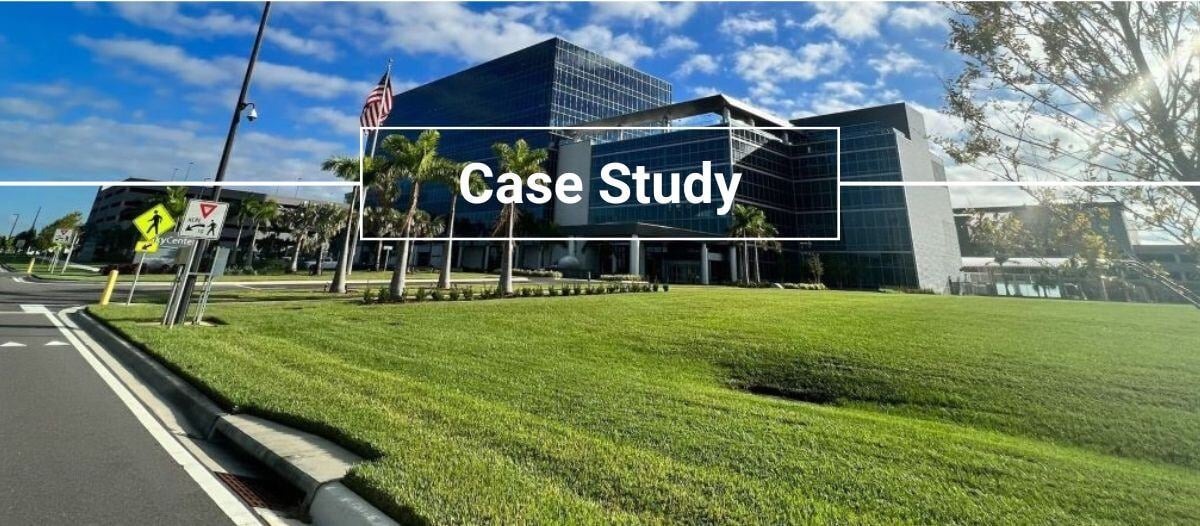Elevate the Experience
Transforming FM through authentic hospitality

When people think of hospitality, they typically think of hotels and restaurants. However, the reality is, any industry that interfaces with customers is in the hospitality business, even if they do not realize it. This is especially true in facility management wherein janitorial and other workers are the face of the facility — the people customers see and interact with on a regular basis. Although many FM teams are trained to have a customer service mindset, too often it does not translate into genuine hospitality. This can have profoundly negative impacts on the overall customer experience, as well as FM and business success.
When hospitality is not authentic
People inherently know subpar customer service when they experience it. It is the feeling of being treated as a number rather than a valued patron. It is the smile that does not reach the worker’s eyes or a monotone conversation that seems scripted. It is the experience of customers feeling like they are being “handled” rather than representatives truly caring about them and their situation.
Many FM professionals have probably been guilty of this at some point or another — even when they have the best intentions. FM teams are often juggling competing priorities, so when they focus on fulfilling their tasks, their customer interactions may come across as curt. Sometimes it is due to inherent cultural and language differences. Or perhaps the staff member is simply having a bad day due to issues in their own personal lives that, like many people, they brought to work that day.
When workers are not focused on delighting the customer and making their day brighter, they are not embodying the spirit of authentic hospitality.
True hospitality elevates customer service
As author and civil rights activist Maya Angelou famously said, “People will forget what you said, people will forget what you did, but people will never forget how you made them feel.” Genuine hospitality goes beyond basic customer service to create meaningful connections. It helps people on the receiving end feel good. It lifts the spirits of visitors, tenants and employees, and makes them feel positive about patronizing a company.
By being genuinely warm and welcoming, proactively reaching out to building occupants and taking a sincere interest in helping them, FM teams practicing authentic hospitality can deliver truly excellent customer service. Being on the giving end will also affect the spirits of FM workers. It has been shown to reduce givers’ stress and improve their self-care — both of which are vitally important for the health, well-being and effectiveness of FM staff.
6 core tenets of authentic hospitality
Authentic hospitality creates experiences that make customers feel valued, respected and safe. Embodying this mindset requires intentionality and a focus on human-centric service.
Studies have shown first impressions form within the first 33 milliseconds to 27 seconds of meeting someone. Once formed, they are difficult to change. This is why starting off on the right foot is so critical. Being present is key — from the moment guests enter a facility throughout any interactions FM staff have with them during their stay.
The impact of something as simple as saying, “Good morning, have a nice day” while making eye contact with people entering the building, “Hello” when passing guests in a hallway, or “Good night, get home safe” as they are departing, cannot be underestimated. For workers who have a language barrier, teach them a few words and phrases so they can also showcase the FM team’s authentic service.
It is important to remind workers to be aware of their nonverbal communications via body language. For instance, talking to guests in what one thinks is an attentive way while having arms crossed or not making eye contact can convey inauthenticity, boredom or even annoyance, and make FM staff seem unapproachable or uninterested, erasing any good intentions.

Micro social encounters imbue a sense of being recognized and belonging.
FM workers should strive to make personal connections and build rapport with guests they see on a regular basis. Knowing tenants’ preferences, remembering frequent visitors’ names or simply asking about their day can make a lasting impression. If they volunteer personal information, perhaps about their pet, family member or work, occasionally ask how they are doing. For example, at a university residence hall, greeting students by name or inquiring about their courses makes them feel recognized as individuals.
Remember, it is always important to decipher who is open to building rapport and to what extent on any given day. Be aware of their body language.

To practice empathy, one cannot take interactions personally. Remember, guests who complain or are curt with FM staff are expressing their feelings about the situation, not about the person they are speaking with.
For instance, if a tenant reports a recurring HVAC issue, an empathetic FM employee would actively seek to learn more. They ask questions, acknowledge the inconvenience, validate concerns and perhaps even mention how they would feel the same way. This reassures occupants that their comfort is a priority, even when solutions take time.
Perhaps a guest simply responds to a worker's “Hope you’re having a great day” comment with “Today was awful.” The FM employee might say, “I’ve been there; hope tomorrow is a lot better!” This not only makes a personal connection, but also shows the worker is human, too.
Using humor can help foster empathy while making guests feel comfortable in awkward or embarrassing situations. If a guest drops a bunch of papers on the lobby floor and seems flustered, a team member might say, “If I could go a single day without dropping things, it would be a miracle!” That is sure to get a smile of relief.

They can also help occupants feel seen and cared for.
Tenants and visitors often interact with FM staff when something is not working, which already creates friction. Being proactive requires having a keen sense of awareness of oneself and others and being able to observe when someone needs help. It requires remembering that FM workers are always on the job, even when not attending to a specific task.
For instance, a team member entering an elevator with a guest whose hands are full should offer to push a floor button for them. If they are walking through the lobby and see a guest who looks confused, ask if they need assistance. If the guest wants directions to a particular room or area, escort them to their destination. If the guest raises a question the worker does not know how to answer, take them to someone who will.

A welcoming facility is only as strong as the trust occupants have in their physical well-being. There are times when prioritizing safety may appear to conflict with delivering excellent customer service — but it is essential to remember that true hospitality always starts with protecting people.
Practicing safety goes beyond routine compliance checks. It involves identifying hazards, monitoring environmental conditions and enforcing protocols consistently. Staff must be empowered to make judgment calls that prevent harm, even if it inconveniences a guest temporarily.
For example, imagine a visitor attempting to take a shortcut through a wet floor or an off-limits maintenance area. An FM staff member exercising authentic hospitality would intervene calmly and courteously, explaining the risk, acknowledging the potential inconvenience and offering an alternate route. This approach keeps the guest safe while still guiding them efficiently to their destination. By balancing attentiveness, clear communication and empathy, the employee helps ensure that safety feels supportive, not punitive.

Effective de-escalation requires empathy, active listening and structured problem-solving. Staff should remain present and calm, thank the customer for what they shared, acknowledge their concerns, tell the customer how they can help, and clearly communicate next steps or timelines. If the FM team member is unable to determine next steps or address the concern, they should explain that they will get a manager who can; then make sure to do so and follow up to ensure the resolution happens.
All of this is often easier said than done, of course, especially in tense situations; so, practicing these skills is a must. Leaders should train staff in communication techniques, stress management and scenario-based exercises.
Authentic hospitality combines human-centered care with operational excellence. Being present, making personal connections, fostering empathy, going above and beyond, prioritizing safety and managing conflict effectively are not just soft skills, they are power skills — strategic tools for cultivating positive experiences and enhancing tenant satisfaction and retention. FM leaders who embody these principles set their organizations apart, creating environments where people feel genuinely welcome.

Armando Lezama is a noted pioneer of green cleaning and sustainability with more than 20 years in the integrated facility services industry. As UG2’s Vice President of Operations, he oversees janitorial and workplace solutions services for New England customers. Lezama prioritizes relationship building, client satisfaction, and five-star service delivery in all his partnerships and has been a part of the UG2 family since April 2013, having joined soon after the company’s inception. Lezama completed Economic Studies at the Universidad Tecnologica de Mexico and holds a Certificate of Facilities Management from Northeastern University.
Read more on Communication and Leadership & Strategy or related topics Communication Skills
Explore All FMJ Topics








